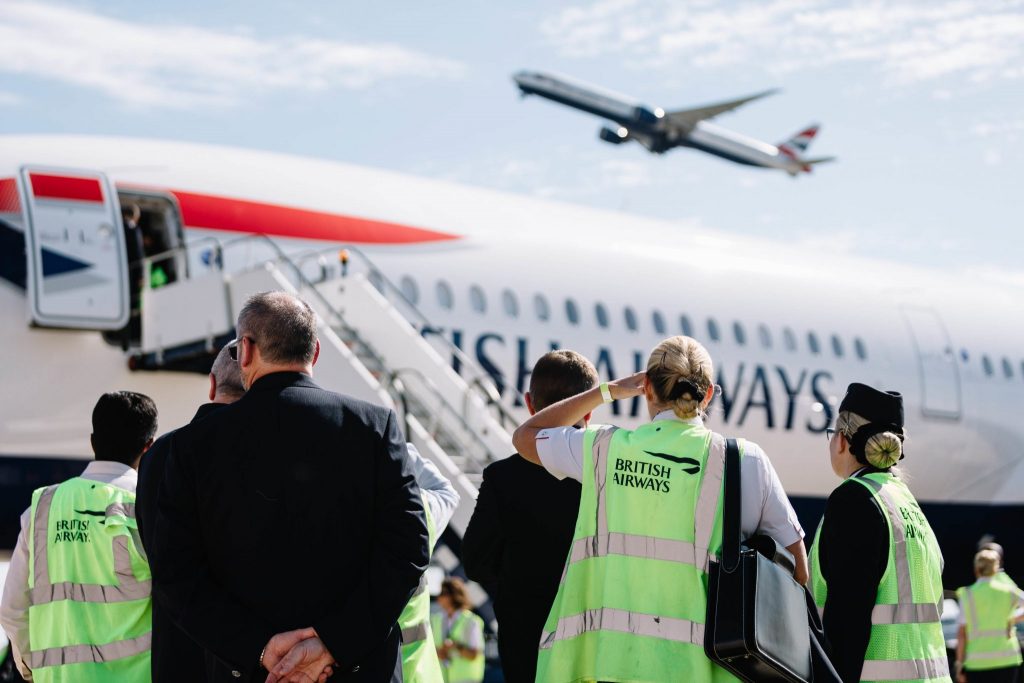IAG Says It Won’t Repeat Past Mistakes With Coronavirus Response

Skift Take
While most travel and tourism companies are trying to cope with the spread of coronavirus as it moves from Asia into Europe and the rest of the world, IAG’s outgoing CEO Willie Walsh is thinking about what happens afterwards.
Walsh, who will step down on March 26 and officially retire on June 30 from the airline group, said he wouldn’t want the company to repeat past mistakes when it comes to dealing with a serious external shock.
"We may not do things exactly as you would expect, because we've learned from what we did in the past," Walsh said on an earnings call with analysts on Friday.
>> Get the Latest on Coronavirus and the Travel Industry on Skift's Liveblog
Prior to leading IAG, Walsh served as CEO of British Airways and before that of Irish carrier Aer Lingus. He has been in the industry for decades and in that time dealt with terrorist attacks, volcanic eruptions, and other virus outbreaks.
In the past this meant cutting capacity, but, he added, "what we then found is with the recovery in demand, with no seats to sell at the higher prices, so in revenue terms and profit terms, it was suboptimal."
"Having learned from that experience, we're not going to repeat the mistakes we made. So we'll do it in a different way. And I'm not going to explain all of the commercial initiatives that we're going to take. But some of them may appear to be counterintuitive at this stage, but that's based on the learning that we've had from similar situations in the past," he said.
That doesn't mean IAG is doing nothing to try and mitigate the situation. Its group long-haul airlines, Iberia and British Airways, canceled flights to China and IAG is now seeing a drop in demand in Italy, where there is a significant outbreak of the virus. It has subsequently decided to take capacity out of that market.
"[We] have taken a lot of capacity out of the Italian market during the month of March. Some of that has been announced already. So that is being actioned as we speak. So we'll be making adjustments to the schedule for all of the airlines... we're seeing this across the group. And we will look at some potential capacity adjustments on other parts of the short-haul network as well," Walsh said.
Given the evolving situation, Walsh declined to offer up any earnings guidance for the current financial year, saying it was "far too early for us to call."
New CEO
Walsh is handing over to Luis Gallego, the current CEO of Iberia. IAG has also made a number of other senior appointments to fill the gaps following the internal shake-up.
Walsh called Gallego "one of the exceptional leaders in our industry."
"He's demonstrated leadership capabilities through what he's achieved in Iberia. And it's not just a financial transformation. Some people focus on that. It's a — total transformation. The brands, the culture, the atmosphere, the engagement at every level in Iberia, you have seen it transformed," Walsh said.
Low-Cost, Long-Haul Challenges
The airline industry has been trying to work out how to make low-cost, long-haul flying profitable for decades. Plenty of airlines have entered, then exited the space and the most well-known proponent, Norwegian, has had some well-publicized struggles.
IAG developed and launched its own offering, Level, at breakneck speed, and had some initial success. But Walsh admitted it was having some problems, especially out of its Paris base.
"The market has not responded in the same way in Paris, as it did to Barcelona, with stimulating new and additional demand. So the performance in Paris is under review," Walsh said.
Full-Year Results
IAG's pre-tax profit for the year to the end of December 2019 fell 34.8 percent to $2.5 billion (€2.3 billion) with revenue for the period up 5.1 percent to $28.2 billion (€25.5 billion.)
The drop in earnings was mainly down to a pension charge in 2019, compared with a pension credit in 2018. The company also took a hit from industrial action.
"These are good results in a year affected by disruption and higher fuel prices. We demonstrated our robust and flexible model once again through additional cost control and by reducing capacity growth to reflect market conditions," Walsh said in an accompanying statement.




